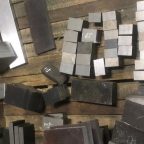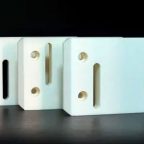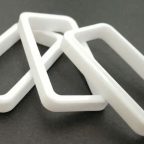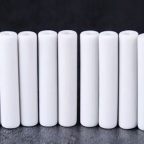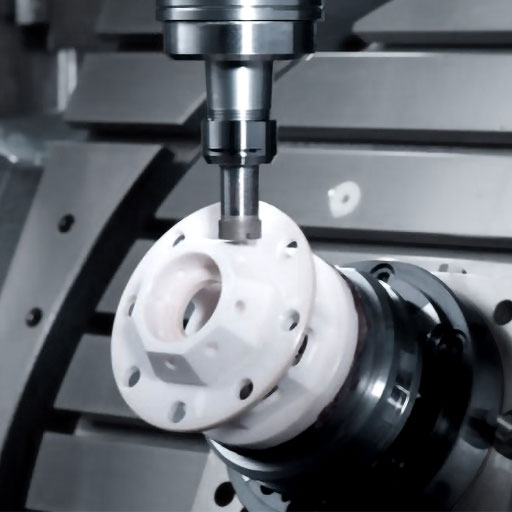I introduced some applications of zirconia ceramic coating to you before, so do you know what is the process of making it? Below Pintejin Ceramics Factory will give you the answer.
ZrO2 has low thermal conductivity and is a high-temperature resistant ceramic, so coating a layer of (<4mm) ZrO2 coating on the metal surface can improve the temperature resistance of the metal (prevent oxidation), prevent heat loss, and improve thermal efficiency. have a certain effect.
Zirconia ceramic parts
The ZrO2 coating process generally has the following ways:
- ①Using high temperature plasma spray fishing method. Taking advantage of the high temperature of the plasma, ZrO2 is melted and sprayed directly onto the metal substrate. This not only requires uniform ZrO2 particles (easy to melt uniformly), but also requires appropriate technology to adjust the composition to prevent the coating from twisting and peeling off after cooling, which is generally solved by means of a transitional intermediate layer.
- ②Apply the method with liquid or mud. Use Zrocl2 and other zirconium salts that are easily soluble in water, add a certain amount of stabilizer, and make a suitable slurry liquid. Use spraying, dipping or other methods to make the zirconium slurry adhere to the surface of the metal substrate, and then in a certain amount of It can meet the requirements after heat treatment at the same temperature. If it does not work at one time, it can be repeated until the coating surface is dense and uniform.
The advantage of this method is that it is carried out at low temperature, has the advantages of energy saving and easy operation, and can be adjusted to the required thickness more freely. An example is as follows: Mix Zro2 with an average particle size of 7.5 um with water, adjust to a suspension with a relative density of 2.3 (containing 75% ZrO2 solids), clean the surface of the object to be painted, and then apply a 0.1mm thick coating, After drying at 110°C for 2h, it can be fired at 1280°C for 1h.
Zirconia coating is mainly used for heat-resistant parts of rockets and the top coating of pistons in automobile engines, etc., which can achieve energy saving and other effects. ZrO2 also has the function of absorbing infrared rays, so ZrO2 is added to many infrared materials to make thin films, which can exert its function in many occasions.
Pintejin machining ceramic service include : Alumina Ceramic Parts, Zirconia Ceramic, Silicon Carbide Ceramic, CNC Machined Aluminum Nitride Ceramic, Machinable Ceramic Parts, Glass Ceramic,Macor Ceramic,Powder Metallurgy Dies,Ceramic Injection Molding,Ceramic Dry Pressing,Ceramic Extrusion Dies
